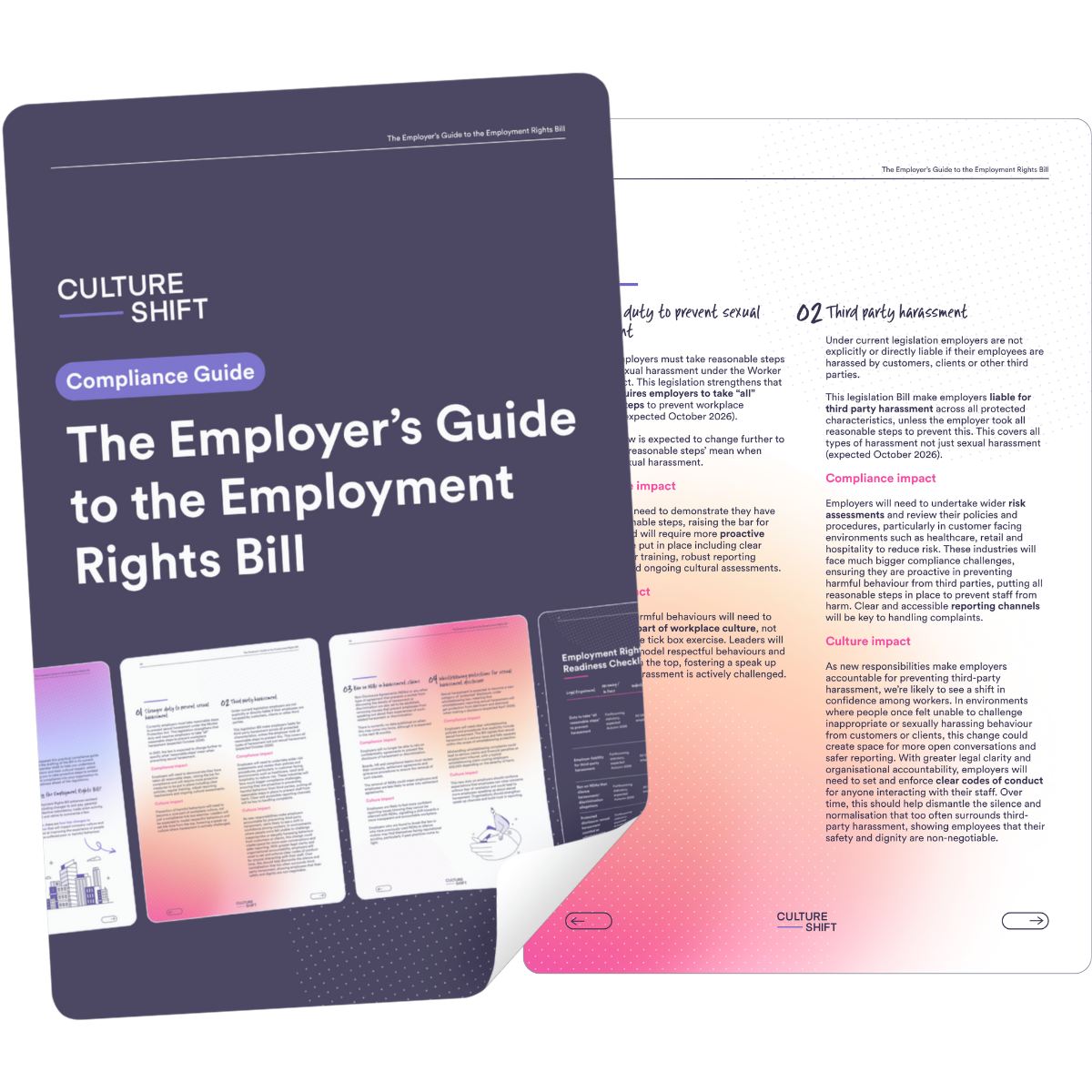The Employer’s Guide to the Employment Rights Bill
The Employment Rights Bill is set to transform workplace culture, prevention standards and employer accountability. With reforms rolling out from 2025–2027, organisations need to act now to stay compliant – and stay ahead. Inside the guide:
Clear breakdown of the upcoming cultural & compliance reforms
What “all reasonable steps” really means for employers
How to prepare for new harassment, NDA and whistleblowing standards
The cultural risks most organisations aren’t ready for
A practical readiness checklist
Download your copy
Please note, your guide will open in a new tab.
Why this guide matters
The Employment Rights Bill represents a cultural turning point. For the first time, employers will be held to a higher duty of care – not just to respond well when harm occurs, but to actively prevent it.
Our guide helps you cut through the noise and understand what the Bill means for your people, your policies and your culture.
The risks of waiting
Many organisations are assuming that detailed government guidance will arrive before taking action. But the Bill introduces standards that require long-term preparation, including:
- enhanced harassment prevention requirements
- clearer expectations around reporting and whistleblowing
- more accountability for third-party behaviour
- the end of NDAs that silence harassment
What the guide helps you do
This guide doesn’t just outline what’s changing. It helps you:
- understand the cultural implications behind the legislation
- identify gaps in your current compliance approach
- strengthen prevention, reporting and accountability
- prepare leaders for their increased responsibilities
- build a culture that reduces risk and increases trust

Why Culture Shift?
Culture Shift supports organisations across every sector to:
- prevent culture-damaging behaviours
- build trust in reporting
- demonstrate compliance with confidence
- make data-led improvements to culture and safety
- prepare proactively for legislative change
Our expertise has shaped this guide – and it’s what will help your organisation stay ahead of the curve.
Trusted by






